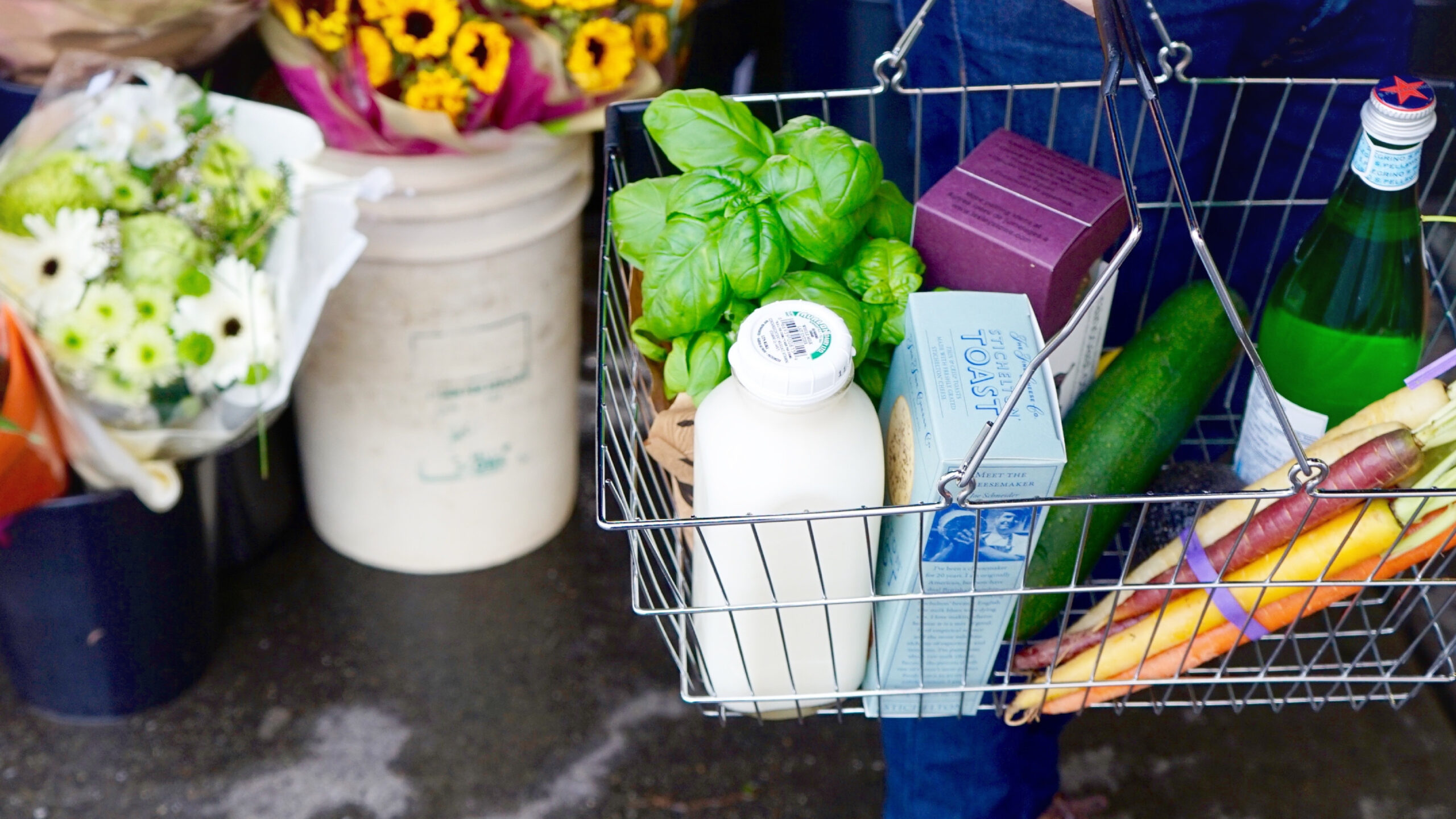As a college student, you’re already faced with the constant struggle of making ends meet, between your tuition and textbook costs, dorm room bills, and food expenses. But if you don’t plan ahead, things can get even more challenging when it comes to grocery shopping as a college student – so it’s important to start budgeting for groceries as soon as possible. Here are some helpful tips to get your grocery budget and grocery list started.
How Much Should I Spend on Groceries?
According to the Education Data Initiative, the average cost of food per month for a college student is just under $600. This includes all food expenses like groceries, eating out/off-campus, on-campus meal plans, and other miscellaneous food items. The average cost of groceries for a college student is right around $260 a month. A college student will spend anywhere from $180-$320 per month on groceries. This comes out to about $65 for groceries per week.
The cost of groceries and food can be a little pricy if you’re not careful. As college students, you have to be resourceful when it comes to your food budget. But with some preparation and creativity, grocery shopping doesn’t have to drain all your funds. If you have time and are good at planning ahead, meal prepping can save you time and money in the long run. Start by making a meal plan for the week and create a list of ingredients that you will need from the store. In order to stick to your budget while you’re at the store, avoid any extra purchases and impulse buys.
Tip: Use the calculator on your phone to keep track of how much everything costs and what you are spending while you are shopping.
If you are able to, look into the cost of an on-campus meal plan. Depending on what type of dining hall options and meal plans your college offers, you might end up saving money in the long run by purchasing a meal plan.
College Grocery List Example
As a starting point, think of a few quick and easy meals that you want to make in the next week and figure out what ingredients you will need for those meals. It is also important to keep in mind what kind of storage space you have for your groceries. If you just have a mini-fridge, you might want to limit the number of items that require refrigeration.
When making your grocery list, here are some good rules to follow:
- Include some kind of protein
- Include some kind of fruit or vegetable (can be fresh, frozen, or canned)
- Bread
- Some kind of grain, like rice
- Some kind of carb, like pasta
With food costs on the rise, try to save money where you can. Use coupons to get discounts on certain items and shop sales whenever possible.
Tips to Reduce Waste
The biggest mistake anyone can make when they buy food is overbuying. In order to avoid waste and having to throw things away, only buy what you absolutely need. It can be tempting to want to buy fresh fruit and vegetables, but if you’re unsure you’ll be able to eat it all before it goes bad consider buying them either frozen or canned.
Other ideas to help you reduce food waste are to eat any leftovers you may have or try to make new meals out of what you have in your fridge.
Cheap Ways to Eat Out
Let’s face it, no one likes eating the same thing every night. If you can, plan some room in your food budget for eating out once or twice a week. You may find it’s cheaper to eat out than you thought and it is a great way to get some variety in your diet. A lot of restaurants have daily specials, coupons, or even vegetarian options, making it possible to eat out without spending too much money.
Eating Healthy on a Tight Budget
Just because you might be on a tight budget, doesn’t mean you have to eat ramen noodles every night. The key to eating healthy is sticking to a balanced diet. Try to incorporate things like protein, vegetables, and whole grains into your day. For the days that you are busy and unable to sit down for a full meal, carry things like protein bars, nuts, and dried fruit to keep you full and focused.
If you’re having trouble figuring out how to budget your money or what to buy for groceries, don’t be afraid to ask for help. Reach out to your friends and family for guidance or check what on-campus resources are available.
Be sure to connect with us @ecampusdotcom on Twitter, Instagram, TikTok, & Facebook for more resources, tips, and some great giveaways! And when it’s time for textbooks, eCampus.com has you covered for all your course material needs at savings up to 90%!

